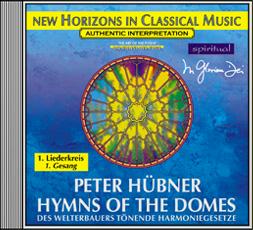“If we wish to help a human being holistically, then there is no higher natural point of view, especially in the area of health, than to
concentrate on the soul – anything else cannot be regarded as holistic.
Our physiology is not holistic. And in so far as we function holistically – as we think holistically at all –, this is only the case, because our
self controls it in such a way.
This is my personal opinion and experience. And it is also the statement made by Pythagoras, and for this reason he says: “
The soul is the key to health”.
Thus, if we want to improve our health holistically and/or fundamentally, we have to start with the
soul and not with our
physiology.
Normally the
soul should
control and/or
govern our
physiology. But nowadays our physiology seems to govern our soul or at least tries to do so.
As you know, Pythagoras was a physician. He was also a composer, musician, mathematician and philosopher; he gave the word “cosmos” its present meaning, he created the word “mathematics” as well as the word “philosophy”.
He was without any doubt one of the greatest thinkers in our history
– and it is no accident that we claim him to be the founder of our
scientific age.
As far as his medical teaching is concerned, Pythagoras taught his students at different levels:
First of all, his training concentrated fundamentally on potential doctors
learning to “hear” illness – first of all for themselves and then to “hear” the illness of their patients.
Today we think this is impossible, but I can assure you that I myself and several other people, who are accustomed to listening to this
Medical Resonance Therapy Music® on a regular basis – i.e. every day –, gradually learn to hear the phenomenon of illness inside themselves, but also hear the particular disease in another sick person entering the room.
It is not that you would hear from there a tone or any sounds – but in some way or other, the magnetic field or whatever else it may be, manages to move from this person into our own brain and thoughts. And suddenly we hear it within ourselves.
It is probably easiest to hear a cold.
I don’t know how many people have already experienced the sound of a cold – but the sound of a cold is very special, and it can also be: heard.
So, if a person with a cold enters the room, you can either feel it at once – even if one does not have a cold or not yet anyhow: But you think you have one.
But it may be that there are some people here at the conference who feel something like that directly. Is that true?
(Some conference participants confirmed that they know this experience – but mainly it is an instinct).



